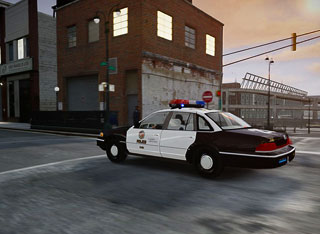A cop’s cop
October 31, 2013
Daniel Sullivan wore his LAPD blues like the rest of the command staff, but he was definitely cut from a different cloth.
In an era when then-Chief Daryl F. Gates set a combative tone for the department, Sullivan, a deputy chief, refused to succumb to such them-against-us nonsense. That was evident in the unlikely relationship he and I forged.
Not long after my election to the Los Angeles City Council in the mid-1970s, I became the panel’s strongest critic of the department’s use of excessive force and its propensity for secretly building dossiers on perceived enemies, including me. Although Sullivan didn’t always agree with me, he said he respected my willingness to tackle the brass. And I, in turn, told him I respected the professional manner with which he and most of his colleagues performed their crucial and difficult responsibilities on behalf of the residents of Los Angeles.
With his jurisdiction stretching across my Westside district, Sullivan would become one of my “go-to” guys when I needed thoughtful and blunt guidance on a criminal justice issue. I’d go on ride-alongs with him until the wee hours to get his unique take on the city he patrolled. Then we’d compete on the racket ball court. He had a boyish, Irish grin straight out of Central Casting.
Many years ago, Sullivan and an LAPD colleague, Joe De Ladurantey, published a book called “Criminal Investigation Standards.” To this day, that volume sits on my shelf—a continuing reminder that you don’t have to be in lock-step with a person to form lasting professional and personal ties, if the relationship is grounded in mutual good will.
As you may have suspected, I’m writing about Sullivan because I learned last week that he passed away.
The last time I talked to him was not long after the 9/11 attacks, years after his retirement. He called me from, of all places, Pakistan. He said he’d been hired by the U.S. government for a border security and police modernization project to help that nation secure its borders. Then I lost touch; I heard he moved to Palm Desert and was easing his way into retirement.
One of the LAPD’s brightest stars, Sullivan had the policing and political skills to become chief of police one day. Only a quirk of timing and the lack of a vacancy prevented that from happening during his years within the department. What a shame. He was the closest friend I had in the LAPD, and I will miss him and what our friendship represented.
Posted 10/31/13













 405 bridge work causes a stink
405 bridge work causes a stink





